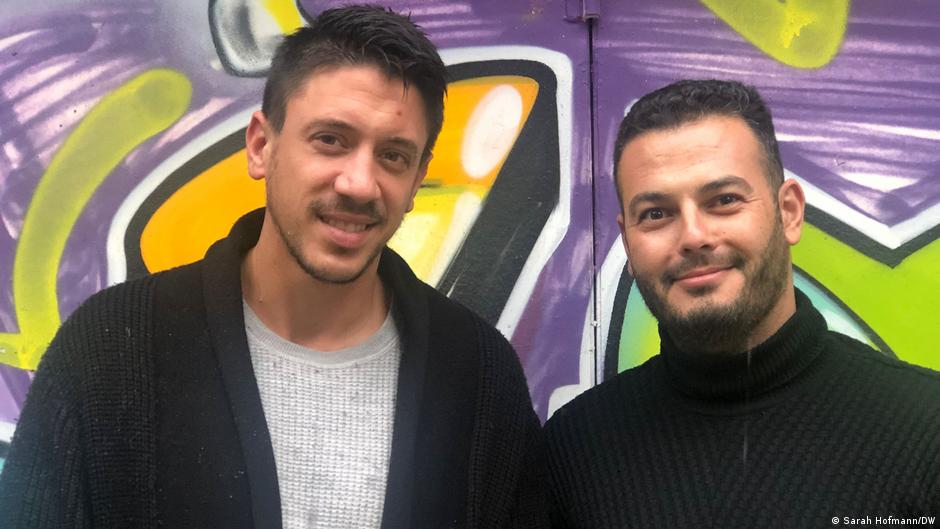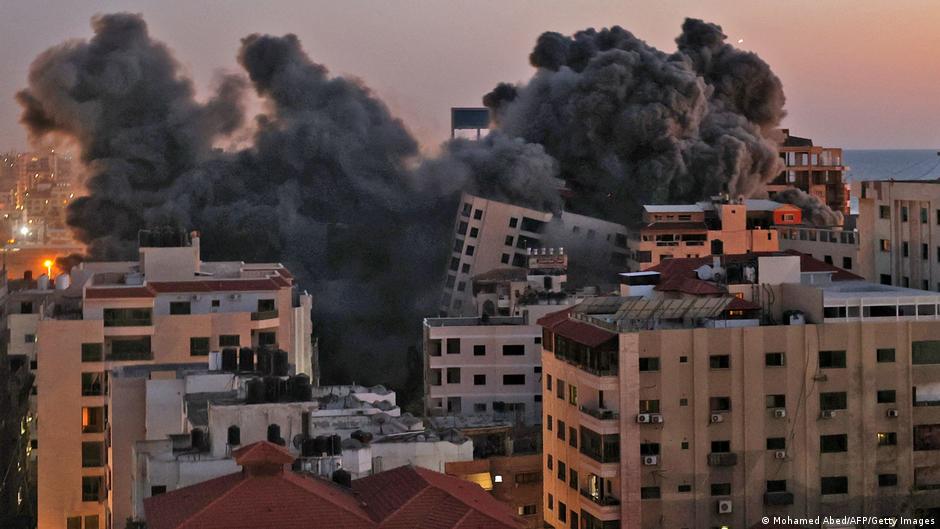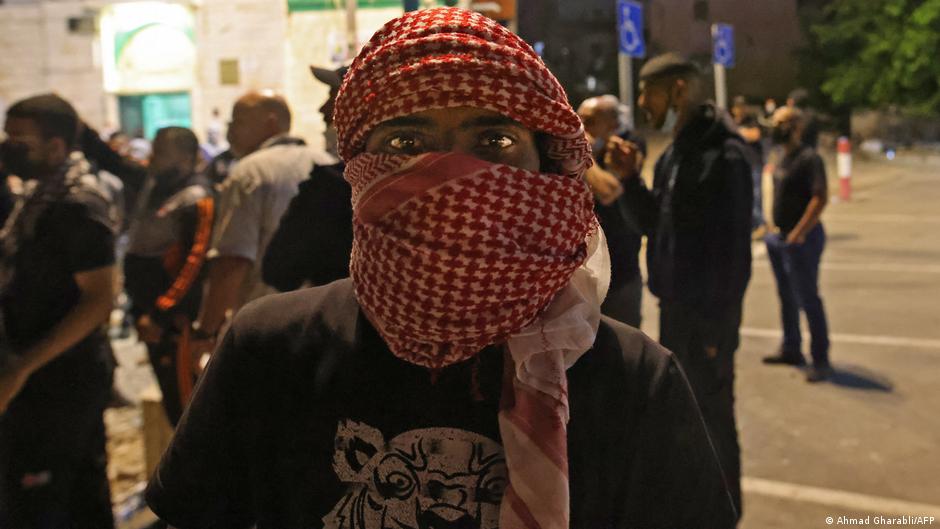Dugri duo for dialogue

Jaffa in December 2021: Arab families sit in the restaurants of the Old City, while young Israelis sit in hipster cafes nearby. The atmosphere is relaxed. "We don't kill each other here every day," says Sameh Zakout, who has his studio apartment on a small side street in Jaffa. "On a daily basis, we get along fine." He laughs bitterly.
However, it is rare for a Jew and a Palestinian to actually sit at the same table and talk openly to each other, he says. But that's exactly what Sameh Zakout and Uriya Rosenman do – these two young men with different roots have conceived a rap project whose Arabic name, Dugri, translates to "straight talk."
In their second video titled "Munfas" (Arabic for "airway"), which was released in November 2021, they sit on two chairs, back-to-back, their bodies bound tightly together with rope.
Yet, however much they squirm and tug at the rope that binds them, they can't free themselves from each other – a fitting metaphor for the situation of Israelis and Palestinians in the Middle East conflict. It is probably no coincidence that the refrain recalls the slogan of the "Black Lives Matter" movement after the violent death of the American George Floyd: "I can't breathe". Singing "We can't breathe" in their native tongues of Arabic and Hebrew respectively, it is cry for change after an escalation of violence.
Jaffa in May 2021: "There was panic"
For days, the once-Palestinian city of Jaffa, which has become part of Tel Aviv in the current state of Israel, resembled a war zone. Cars were smashed and store windows were broken; the famous flea market was barricaded.

Many residents did not dare venture out on the streets because of repeated attacks by Arab extremists on Jews and by Jewish mobs on Arabs. Jaffa and many other mixed Arab-Jewish towns in Israel were in shock. "It was a whole new dimension" recalls Uriya Rosenman. "There was panic." The war was no longer just between Hamas in Gaza and Israeli forces; it was between Israelis of different backgrounds. Many wondered how it could have come to this.
A rap song seemed like an epiphany and a slap in the face at the same time. It made clear what many had previously refused to believe: the subliminal aggression between Israelis of Palestinian and Jewish origin had long existed, it only needed a trigger to flare up. It was the first song by the rap duo, titled "Dugri".
Equally prejudiced
In Hebrew, Uriya raps, "Wherever there are Arabs, there are terrorist attacks. And you expect to get into nightclubs? Why don't you stop harassing our women?"
Sameh retorts in Arabic, "You Jews have forgotten what it means to be a minority." And: "You say a good Arab is a dead Arab."
Uriya Rosenman asked dozens of people across Israel about their prejudices to write the lyrics, long before the escalation in May. He heard hatred and racism on both sides. Uriya insists, "Nothing about the insults was made up. That's how we sound at family gatherings when we're in private."

Uriya himself says he was a classic mainstream Israeli. After high school, he joined the army and became a combat soldier. "I was afraid of the Arabic language," he recalls. "In the army, you learn this is the language of the enemy." For a long time, he had had no idea about the history of the Palestinians.
Palestinian and Israeli
Sameh told him about the Nakba, or the "catastrophe," as the Palestinians call the flight and expulsion in the wake of the founding of the state of Israel in 1948. And how it scattered his family across the world – from Israel to Gaza to Lebanon and Germany. Sameh holds an Israeli passport. But he doesn't like the term "Arab Israeli" that is often used. It's not "Dugri" – not honest, he says, but glosses over the conflict of the two identities. He is a Palestinian. He has an Israeli passport. And he wants to have the same rights as Uriya.
When the two first met, they both harboured their own prejudices. For years, Uriya, with a background in education, had already been working on a song about racism in Israel when a producer finally introduced him to Sameh, the rapper from Jaffa. Uriya wanted to record the song together with him.
Sameh says he was sceptical, not wanting to be involved in a "co-existence project" that was only supposed to show that Jews and Arabs could live together peacefully after all, while in reality there was seething under the surface. He was surprised that Uriya actually wanted to speak plainly.
Hope for change
The clip went viral, was viewed a million times on the news portal of the Israeli daily newspaper Ynet alone, and shared on various Facebook pages, garnering millions of clicks. The two artists were interviewed by various media groups, from the Israeli news portal Ynet to CNN. They were subsequently invited to schools across the country to discuss their rap lyrics. The two hope the young generation will finally manage to free itself from the vicious circle of racism and violence.
"I'm different from Uriya," Sameh says. "We have different stories, we don't always agree, but we still get along." However they aren't naive either and don't want to solve the Middle East conflict through rap. But they want to build hope. "We met as strangers and today we are best friends. If we can do it," says Uriya, "so can others."
Sarah Judith Hofmann
© Deutsche Welle 2022
